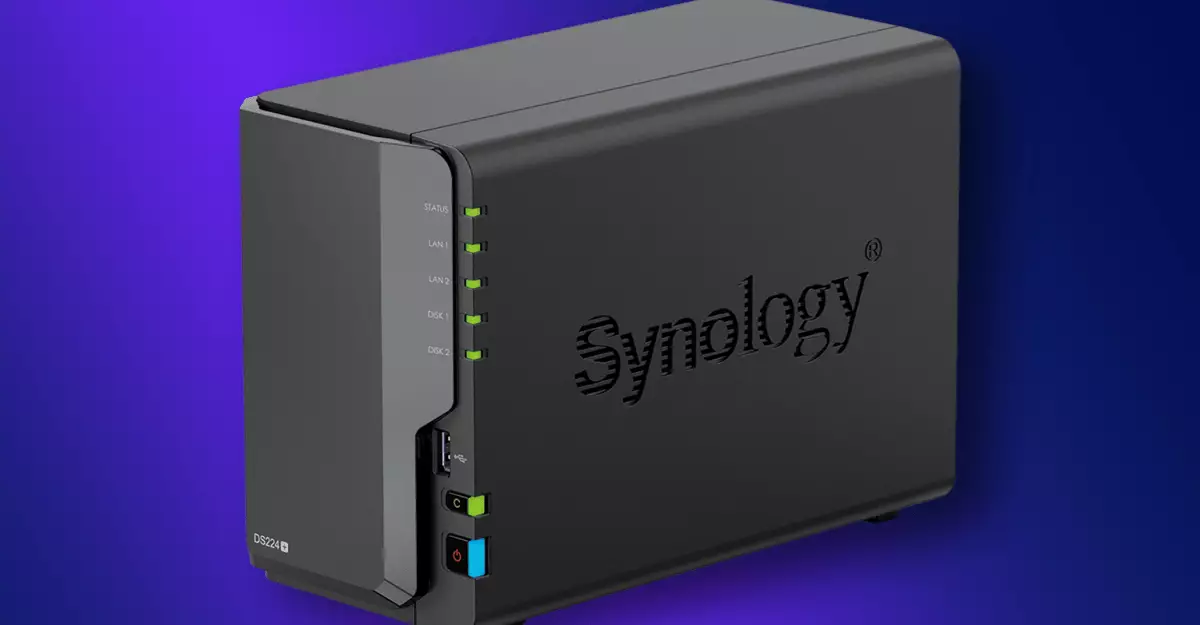Pioneering Changes in the NAS Landscape
Synology, a leading player in the network-attached storage (NAS) market, is set to implement significant restrictions regarding third-party hard drives in its upcoming models. While this move has stirred both curiosity and concern within the tech community, it also highlights the evolving nature of digital storage solutions. In a recent announcement, Synology assured users that existing NAS systems would remain unaffected, but the implications for future investments are noteworthy. It poses questions about user autonomy and market dynamics as NAS technology continues to transform.
The Rise of Proprietary Hardware and Its Implications
Beginning with the Plus Series models expected in 2025, Synology plans to limit compatibility strictly to Synology-branded drives and those authenticated through a certification process. This shift might affect typical applications of the NAS, such as household backups and local media servers. The company justifies these restrictions by emphasizing that validated drives significantly reduce failure risks and compatibility issues. Yet, this approach raises ethical questions about consumer freedom and choice, as users may find themselves cornered into selecting only Synology’s products—often at higher prices.
Understanding the User Experience
User experience can often feel compromised when companies lean towards more restrictive practices. With Synology’s forthcoming updates, new and existing users may grapple with the consequences of limited options. Although the current devices will not face immediate repercussions, consumers considering upgrading or expanding their systems might feel wary about such encroachments on choice. The tightening of compatibility could inadvertently foster a sense of frustration, prompting users to explore alternative brands that prioritize open compatibility and fault tolerance.
Financial Ramifications for Consumers
One of the most immediate impacts of Synology’s new policies is financial. Introducing restrictions on third-party drives diminishes the flexibility that often allows consumers to choose budget-friendly options. The ability to utilize a variety of hard drives offers not only economic benefits but also an opportunity to tailor storage solutions to unique needs. By steering users towards only approved models, Synology tacitly monopolizes a portion of the hard drive market, potentially driving up prices and limiting consumers’ ability to economize.
Market Trends and Consumer Sentiment
The unfolding trends within the tech sector often spotlight a balance between innovation and user empowerment. Synology’s decision, while grounded in a desire for enhanced reliability, may inadvertently alienate a loyal customer base. As consumer sentiments lean towards favorable pricing and compatibility, companies must navigate these waters carefully to maintain goodwill. Users are increasingly discerning; they do not simply desire functional products but also seek empowering solutions that respect their purchasing decisions.
The Road Ahead for Synology
Moving forward, Synology faces the challenge of justifying these restrictive measures in a competitive landscape. While the company’s commitment to performance and reliability is commendable, it must remain attuned to user feedback and demonstrate an understanding of its clientele’s needs. Balancing business interests with consumer rights will be pivotal in shaping a sustainable future for Synology’s brand and technology. The path forward should not only focus on profitability but also consider long-term brand loyalty and customer satisfaction as crucial elements in an ever-evolving tech market.
Skip to content
Your Number #1 Source For Gaming News
Essential Innovations: Synology’s New Era of Drive Compatibility


Leave a Reply